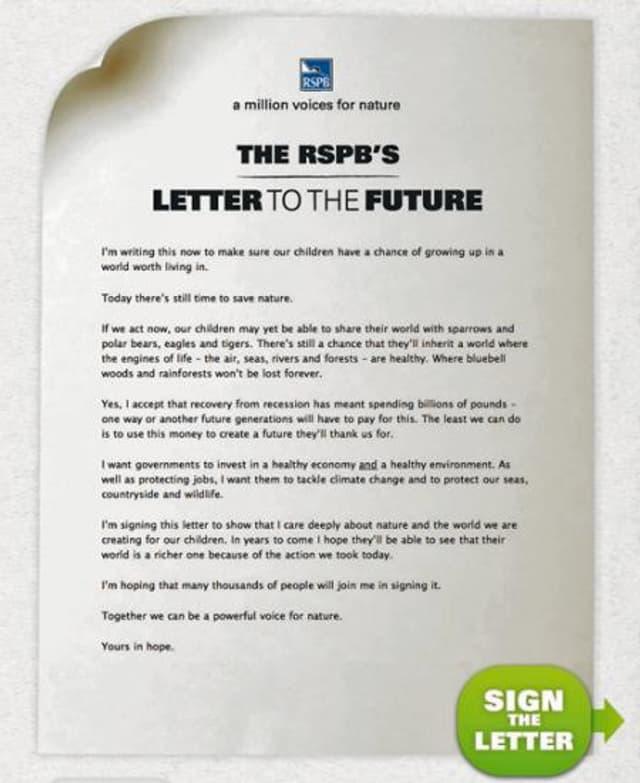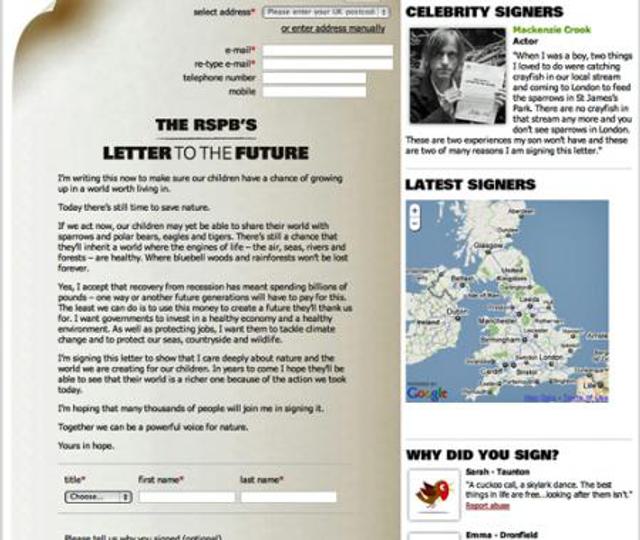RSPB: Letter to the future
- Exhibited by
- The Good Agency
- Added
- April 19, 2014
- Medium of Communication
- Direct Mail
- Target Audience
- Awareness
- Type of Charity
- Environmental/animals
- Country of Origin
- UK
- Date of first appearance
- 2009
SOFII’s view
How do you engage people in your cause, grab their attention and encourage them to stand alongside you on an issue of national importance? Not easy, we think. But here’s a brilliant example of a national conservation charity doing just that, very successfully.
Creator / originator
RSPB/ The Good Agency
Summary / objectives
To increase the RSPB’s influence on government policy, to recruit new members, to stretch the brand. NB: these objectives are held equally and not in a hierarchy
Background
Recovery from the recession means spending billions, even trillions of pounds of our children’s money. So it’s also an opportunity to spend that money on a world worth inheriting, by investing in green spaces, energy and infrastructure. With policy objectives in all these areas, the RSPB had an opportunity to launch a campaign to a mass audience beyond its usual constituency.
Special Characteristics
As a campaign that genuinely holds multiple objectives, it’s driven change within the organisation as well as outside.
Influence / impact
By the time the campaign had finished more than 350,000 people had signed the letter. It’s re-engaged existing RSPB members as well as bringing new people into the organisation with a distinct proposition.
Test details
Some early testing showed that digital channels were more effective than press advertising. Not surprising as it’s very easy to sign the letter online.
Merits
It shows the power of engagement with causes over fundraising mechanics and techniques.
Results
Over 150,000 signatures. Conversion to membership at around 12 per cent.
 View original image
View original image
Also in Categories
Tags
- Branding

















